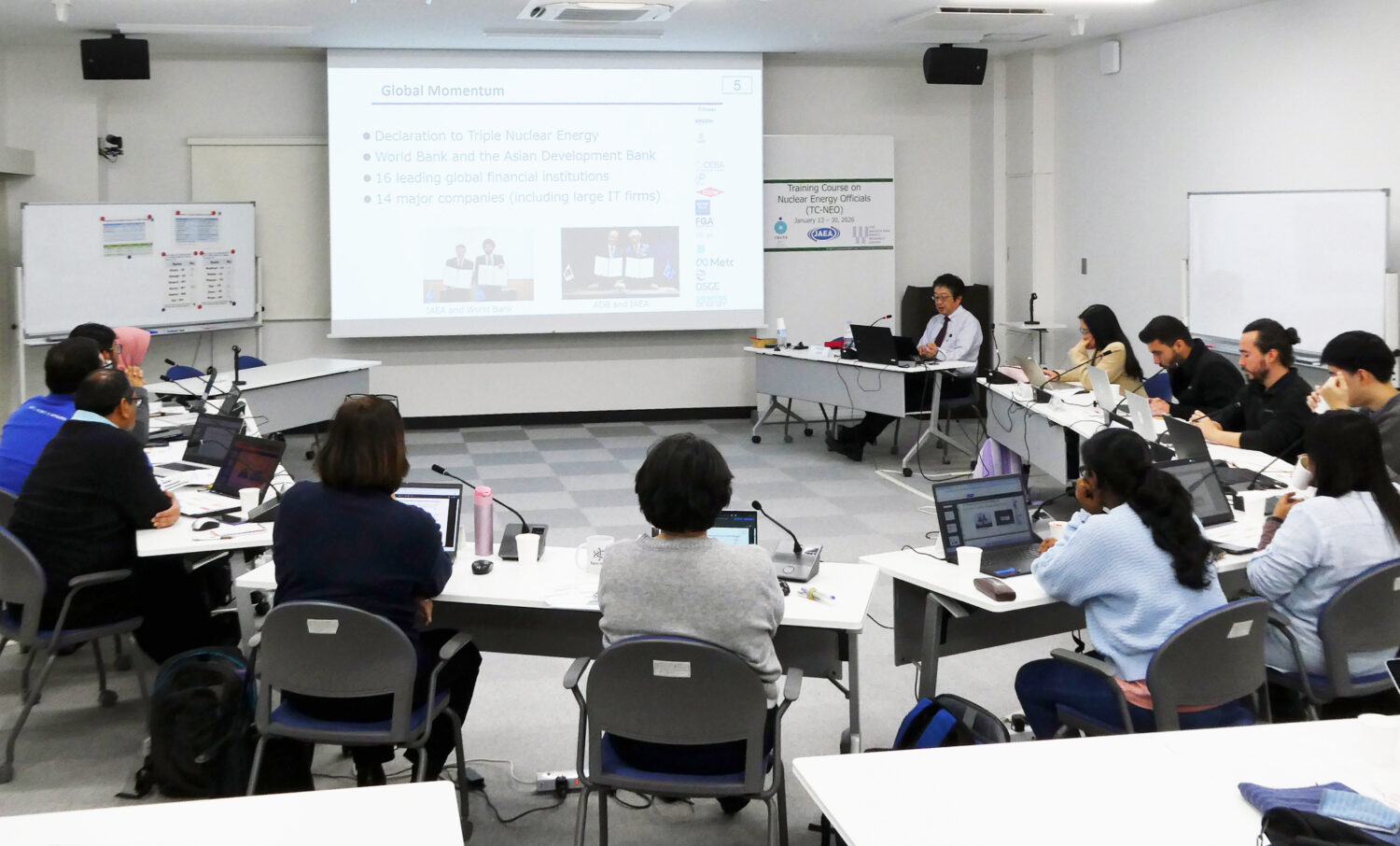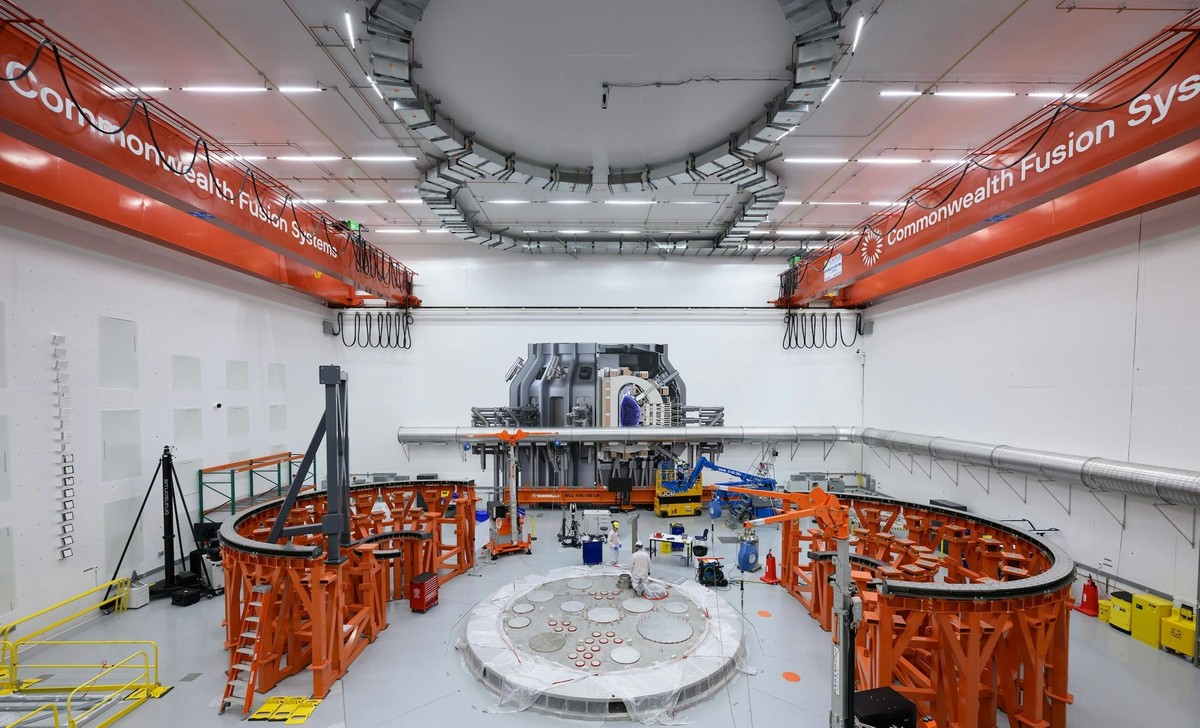A debriefing and closing ceremony took place on 20 September at the University of Tokyo, where Professor IIMOTO Takeshi (University of Tokyo), head of the support committee, and Dr. SATO Daiki (Japan Atomic Energy Agency), training team leader, reported on the program. The four high school participants also spoke about their growth through the international competition.
Professor Iimoto explained the background of INSO, noting that it was launched at the request of IAEA and various countries, including those in the Asia-Pacific, as an “international initiative to foster the next generation of Nuclear Science and Technology (NST) talent.”
INSO, modeled on mathematics and physics olympiads, features a five-hour theory exam and a 3.5-hour practical exam. The inaugural competition took place in the Philippines in 2024. Following strong calls from observers of that event, Japan assembled its first national team this year.
The Japanese delegation was made possible through broad support from companies, organizations, and individuals. Professor Iimoto expressed gratitude, noting that the committee operates entirely on a volunteer basis: “Even sending just six members overseas (two leaders and four students) involves considerable cost.” Contributions came not only from nuclear-related companies but also across industries, as well as from individual donors, including experts in the field and those committed to nurturing future talent.
Dr. Sato, who co-led the team with Associate Professor TSUNOYAMA Yuichi (Kyoto University), outlined the preparation process. Beginning with teaching materials and training sessions in December 2024, a national selection was held in April 2025, with four finalists chosen from 18 candidates. The exam included written questions on potassium-40 and an English interview requiring quick, timed responses.
The four selected students then received remote training via Discord and Zoom, culminating in an intensive training camp at JAEA facilities in Tokai, followed by a send-off in Tokyo before departing for Malaysia on a tight schedule.
Results in Malaysia
The competition drew 56 participants from 14 countries. Japan’s results were as follows:
-
Gold Medal: TANAKA Yunosuke (Tokai Senior High School, 3rd year)
-
Silver Medals: TANABE Kazuma (Senior High School at Komaba, the University of Tsukuba, 3rd year); HORI Koshiro (Musashi Senior High School, 3rd year)
-
Bronze Medal: SASAKI Yuzuka (Osaka Prefectural Kitano High School, 2nd year)
Special prizes went to Tanabe (the Highest Score in Experimental Examination) and Sasaki (the Outstanding Female Participant Award). Contest problems ranged from nuclear fission and environmental radiation to radiation stability of vitamin C and searches for orphan sources.
Behind the scenes, Dr. Sato described how one Japanese student’s solution was initially marked zero for omitting steps. “I insisted that if we could reconstruct the steps on the spot, no points should be deducted—so I solved it myself!” he recalled, overturning the grading decision.
Reflections and Growth
The medalists shared their experiences:
-
Tanaka (gold): “Nuclear science was unknown to me at first, but the more I studied, the more fascinating it became. I now want to pursue a future in this field.”
-
Hori (silver): “Interacting with peers worldwide was invaluable—not only academically but also culturally.”
-
Tanabe (silver, the Highest Score in Experimental Examination): “Discussions with students from Singapore and Syria exposed me to diverse talents. I’m grateful for this opportunity during exam season.”
-
Sasaki (bronze, the Outstanding Female Participant Award): “Though female participants were few, I hope my award will inspire juniors. It was encouraging to realize I have peers around the world.”
The event concluded with an announcement of preparations for the 3rd INSO: the first selection will be held in January 2026 and the second in April. Professor Iimoto called for continued support, saying, “This is a handmade effort, built and celebrated together. I hope it will continue to grow with the Japanese team.”
It was also revealed by MIYAMURA Hiroko (JAEA) that the Nuclear Human Resource Development Network will take over as secretariat from next year, signifying INSO’s recognition as part of Japan’s industry–government–academia collaboration in human resource development.



-013.jpg)












